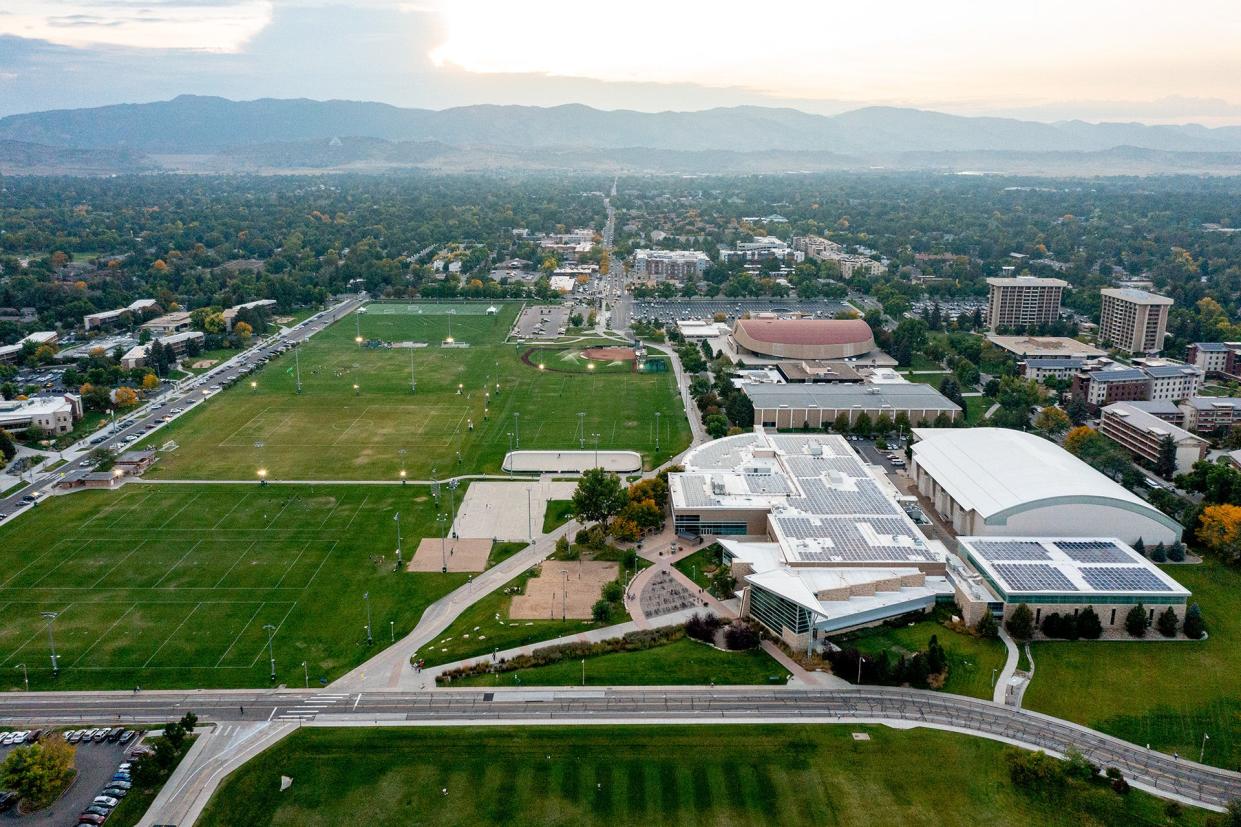Colorado State University rated No. 2 nationally for sustainability efforts

Colorado State University was recognized for its sustainability efforts with a rare platinum rating for the fourth consecutive year in the Sustainability Tracking, Assessment and Rating System, school officials said Thursday.
CSU received the second-highest score among 580 participating higher-education institutions in the U.S. with an 88.13, trailing only the University of California-Irvine.
CSU was the first university in the country to earn the platinum rating in 2015, and only nine other universities in the country, including Arizona State, Stanford, Cornell, and California-Berkeley, have earned platinum ratings in the past three years, according to the website of the Association for the Advancement of Sustainability in Higher Education, which compiles the ratings.
The latest STARS rating for CSU took effect in January following certification of its submission by the Association for the Advancement of Sustainability in Higher Education, according to a news release from the university.
More:CSU plans to build a new bat research facility in Fort Collins. Here's what we know
CSU earned a 100% score in academics, with 22.6% of its courses and at least one course in each academic department including sustainability, and in research, with 92% of its academic departments and 463 employees participating in sustainability research. The university received a 97% score in engagement, with 98.5% of its students reporting that sustainability is important to them.
Each of CSU’s eight colleges offer at least one sustainability-related major or minor, and the university’s School of Global Environmental Sustainability offers several multidisciplinary minors open to any student. About 64% of CSU’s students graduate from a sustainability-focused academic program or complete at least one course focused on sustainability.
“We are incredibly proud to share our latest STARS report as it truly demonstrates deep commitment to sustainability from our Colorado State University community,” said Rick Miranda, interim president for CSU’s main campus in Fort Collins, in the news release. “Sustainability is a cornerstone of our institution, and it is threaded across everything we do, from education to research and service to our operations. For 152 years, Colorado State has conducted leading edge environmental research in fields ranging from atmospheric science to climate-smart agriculture and provided a rich academic environment in which students learn, embrace and foster the value of sustainability from an environmental, social and economic lens.
“Sustainability in all its dimensions will remain a priority for the institution. I thank everyone in our community for their work to earn this fourth consecutive platinum STARS designation because it takes every member of our community to continue this effort.”
Other key sustainability efforts at CSU include the installation of a geothermal exchange system, GeoX, installed in 2020 underneath the university’s intramural fields that uses energy from the ground to heat and cool Moby Arena. The system consists of 342 wells, 550 feet deep, with more than 70 miles of piping. It has reduced total energy use at Moby Arena by more than 50%.
CSU, which has institutional goals of utilizing renewable sources for 100% of its electricity by 2030 and achieving net-zero carbon emissions by 2040, also has 42 solar arrays on campus providing electricity.
CSU’s Natural Resource Ecology Laboratory conducts numerous studies evaluating a wide range of sustainability concerns in agriculture involving both crop and livestock production, as well as addressing land and water management issues that impact global food security.
And the university’s new SPUR campus in Denver is providing integrated approaches to food-security concerns through agricultural research and training, water conservation and treatment, and human and animal health. Many of those programs include learning opportunities, free of charge, for students in kindergarten through 12th grade.
Reporter Kelly Lyell covers education and other topics of interest for the Coloradoan. Contact him at kellylyell@coloradoan.com, twitter.com/KellyLyell or facebook.com/KellyLyell.news.
This article originally appeared on Fort Collins Coloradoan: Colorado State University rated No. 2 nationally for sustainability

